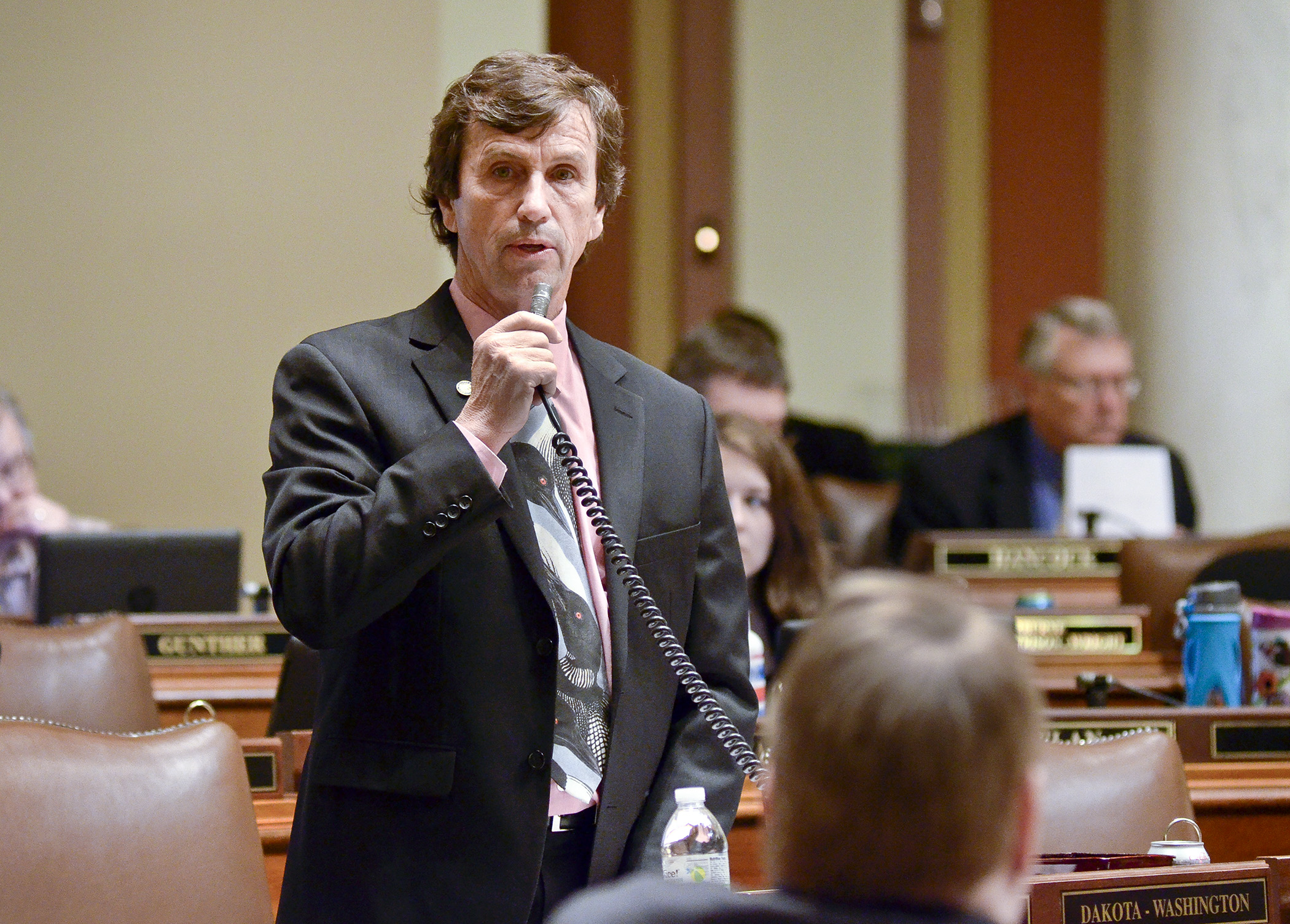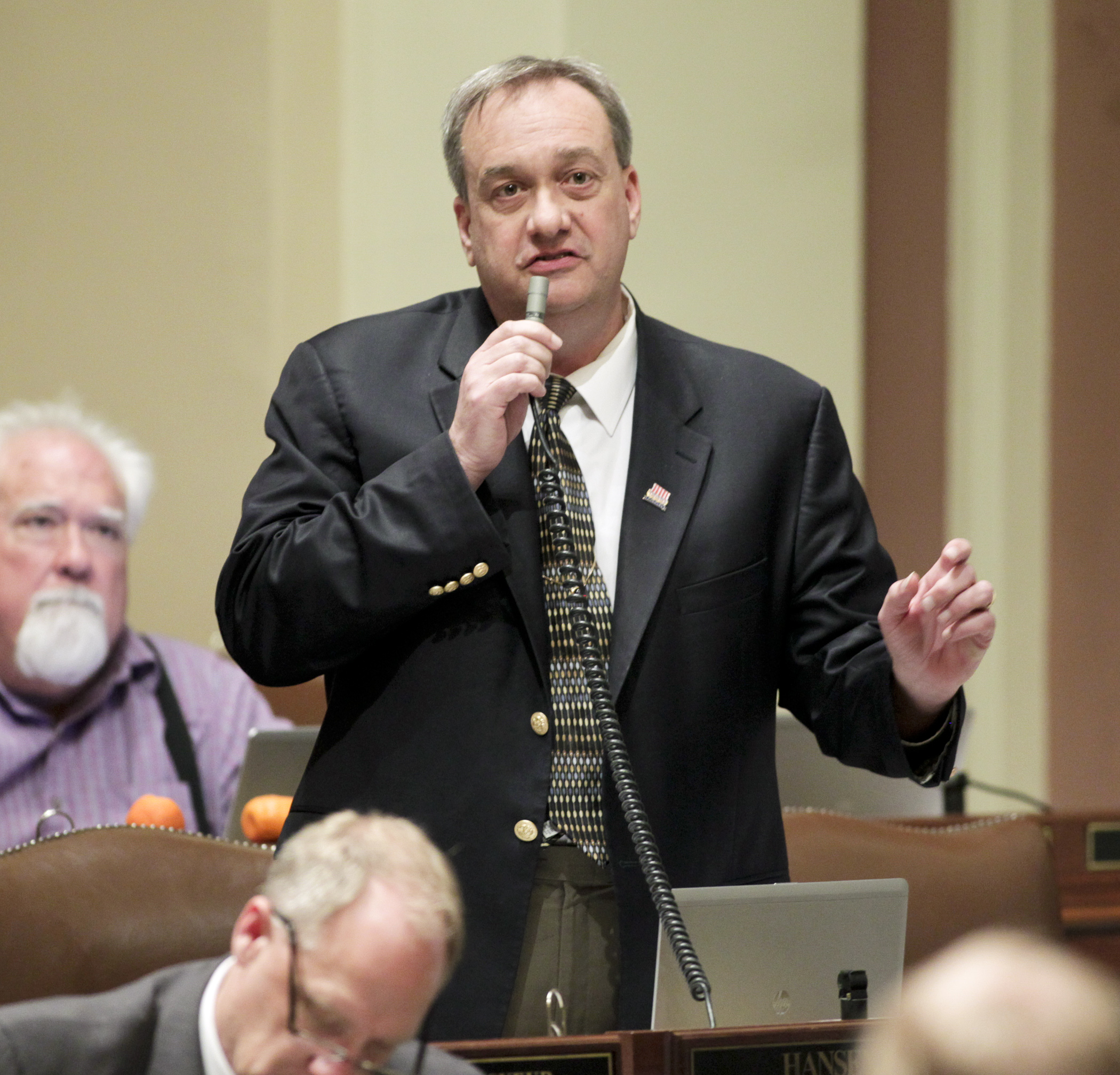House passes $787 million omnibus environment finance bill

After more than four hours of debate and attempts to amend several significant policy provisions, the House voted 78-52 to pass the $787 million omnibus environment finance bill Friday evening.
HF846 would fund state and local government agencies and groups around Minnesota during the upcoming biennium as they work to preserve, protect and enhance the state’s natural resources.
Three agencies would receive the bulk of the proposed funding. The Department of Natural Resources would get $263.3 million in 2016 and $266.4 million in 2017, while the Pollution Control Agency ($92.6 million/$91.9 million) and the Board of Water and Soil Resources ($15.2 million/$15.4 million) would each receive a large share as well.
Rep. Denny McNamara (R-Hastings), the bill’s sponsor, said it included “common sense policy reforms” citing provisions that would create independent peer review of some water quality standards, legislative approval of others and would phase out the use of microbeads in personal care products.
A number of Democrats took issue with some of those same provisions and others, such as one that proposes to strip the Pollution Control Agency’s Citizens’ Board of its decision-making authority and another that would delay new sulfate standards for waters containing wild rice.
 Rep. Rick Hansen speaks about one of his amendments during the April 24 discussion of the omnibus environment and natural resources policy and finance bill. Photo by Paul Battaglia
Rep. Rick Hansen speaks about one of his amendments during the April 24 discussion of the omnibus environment and natural resources policy and finance bill. Photo by Paul BattagliaRep. Rick Hansen (DFL-South St. Paul) called HF846 “chock full of special interest goodies” and questioned who it had been written for.
“When people went to the polls they didn’t ask for rollbacks on environmental law or for the Legislature to get involved in scientific decisions,” Hansen said. “Who asked for this bill? Who asked for these budgets? Who asked for this direction? Not Minnesotans.”
But McNamara said those criticizing the bill weren’t mentioning all of the good it was doing.
“You hear about all the bad in the bill. I strongly suggest you read it,” McNamara said.
HF846 now goes to the Senate where Sen. David Tomassoni (DFL-Chisholm) is the sponsor.
Attempted changes
A common theme voiced during the debate by opponents of the bill had to do with the Legislature assuming decision-making authority on technical issues they said is better left to the experts in those fields.
Rep. Alice Hausman (DFL-St. Paul) offered an amendment that would have deleted language regarding the PCA’s Citizens’ Board, saying citizens had come from around the state to protest an attempt to turn the board from “decision-maker to note-taker.”
However, Rep. Dan Fabian (R-Roseau) said the language in HF846 would allow the board —which currently has the power to make decisions on environmental issues and permitting — to be involved earlier in the review process.
That amendment was not adopted, nor was an amendment offered by Rep. John Persell (DFL-Bemidji) to eliminate a provision delaying new sulfate standards for wild rice.
Agency concerns
The Pollution Control Agency and the Department of Natural Resources have each voiced concerns about HF846. MPCA Commissioner John Linc Stine submitted a five-page letter to the House Environment and Natural Resources Policy and Finance Committee detailing his agency’s objections.
One of his concerns is the bill’s transfer of funds from the MPCA’s Remediation Fund, which he said would hamper the agency’s emergency response capability and reduce its work to clean closed landfills.
“This bill appears to be a step backward,” Stine wrote. “Its provisions result in damaging cuts for the Minnesota Pollution Control Agency.”
However, McNamara has said some of the money in question was from a specific program that hadn’t been used in the last three or four years. Taxpayers would be better served, he said, by being “more prudent” with it.
Successful amendments
The House did adopt a few amendments to the bill, including the one that added language to the bill that would direct the Department of Natural Resources to offer to renegotiate mineral royalty rates and lease terms with the state’s mining companies.
Offered by Rep. Tom Hackbarth (R-Cedar), supporters said the amendment was needed to help those companies remain competitive by lowering some of their costs at a time when the worldwide demand for steel has fallen and Minnesota miners face an uncertain future.
“This is a catastrophe in northern Minnesota,” Rep. David Dill (DFL-Crane Lake) said.
The House also approved an amendment offered by Rep. Jim Newberger (R-Becker) that would require public notification for solid waste facilities.
AIS law repeal
HF846 would also accomplish what McNamara said at the beginning of the legislative session was one of the top priorities of the House Environment and Natural Resources Policy and Finance Committee, which he chairs.
HF846 would repeal a new law, set to take effect this July, which requires boaters to display a trailer decal certifying they have taken an education course teaching best practices to help stop the spread of aquatic invasive species. Instead, the bill would add language to applications for all watercraft and nonresident fishing licenses asking applicants to affirm they profess awareness of invasive species prevention.
What else would HF846 do?
The bill includes measures that would:
- require a feasibility study to examine if state should take over some wetlands permitting authority from the Environmental Protection Agency;
- obtain cost estimates for augmenting water levels in White Bear Lake with water from Sucker Lake;
- lower the registration fee for snowmobiles with an engine displacement 125 cubic centimeters or less;
- allow ATV riders between the ages of 12 to 15 to ride on public roads or streets to access a business in counties or cities that permit that by ordinance;
- extinguish the school trust interest in lands that are not generating long-term economic return;
- modify the Wetlands Conservation Act;
- require local government approval before a new solid waste disposal facility permit is issued;
- make the purchaser subject to penalty for failing to apply for transfer of snowmobile ownership within 15 days of an ownership change;
- exempt a private truck wash operated as part of a livestock farm or animal feedlot from certain permits issued by PCA; and
- prohibit the manufacture and sale of some products containing plastic microbeads.
Related Articles
Search Session Daily
Advanced Search OptionsPriority Dailies
Speaker Emerita Melissa Hortman, husband killed in attack
By HPIS Staff House Speaker Emerita Melissa Hortman (DFL-Brooklyn Park) and her husband, Mark, were fatally shot in their home early Saturday morning.
Gov. Tim Walz announced the news dur...
House Speaker Emerita Melissa Hortman (DFL-Brooklyn Park) and her husband, Mark, were fatally shot in their home early Saturday morning.
Gov. Tim Walz announced the news dur...
Lawmakers deliver budget bills to governor's desk in one-day special session
By Mike Cook About that talk of needing all 21 hours left in a legislative day to complete a special session?
House members were more than up to the challenge Monday. Beginning at 10 a.m...
About that talk of needing all 21 hours left in a legislative day to complete a special session?
House members were more than up to the challenge Monday. Beginning at 10 a.m...